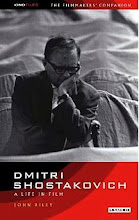
"I like to remember things my own way. How I remember them. Not necessarily the way they happened"
If you’re going to try to sum up David Lynch’s films with a single line, then that one, from Lost Highway, pretty much does it. Conventional narrative and realistic acting have never really had a place in Lynch’s dreamworld, where surfaces only serve to conceal the truth. Civilisation is a thin façade and animal violence and sex could break through at any moment.
The plot of Lost Highway is simple enough but what it means is another matter. After hearing that “Dick Laurent is dead”, Fred and Renée find that an intruder has filmed them during their sleep. Renée is murdered but Fred remembers nothing. He’s arrested and condemned to the chair, but while in his prison cell he transforms into another person - Pete. Released, Pete gets involved with psychotic porn-gangster Mr Eddy’s
 girlfriend, Alice - a blond version of Renée (keeping up?), leading to sex on a motorbike, robbery, more murders and, in a loop back to the start, a discovery of what it means that “Dick Laurent is dead”. In between times we meet the Mystery Man who has the power to be in two places at the same time.
girlfriend, Alice - a blond version of Renée (keeping up?), leading to sex on a motorbike, robbery, more murders and, in a loop back to the start, a discovery of what it means that “Dick Laurent is dead”. In between times we meet the Mystery Man who has the power to be in two places at the same time. As Lynch says: [co-screenwriter] "Barry Gifford may have his idea of what the film means and I may have my own idea and they may be two different things. And yet we worked on the same film. The beauty of a film that is more abstract is everybody has a different take."
 So far, so Lynchian, with the
So far, so Lynchian, with the  director’s habitual forays into weirdness, archetypical characters, pop culture, scarily random violence and bathetic comedy.
director’s habitual forays into weirdness, archetypical characters, pop culture, scarily random violence and bathetic comedy. But then Austrian composer Olga Neuwirth comes along and decides to make it into a piece of music theatre. Unsurprisingly, it’s not your usual night at the opera, and ENO has moved to The Young Vic for the UK premiere.
In some ways it's an odd choice for a musical setting. Lynch's soundscapes (created with Alan Splet, until his death in 1995) have always been crucial to his films, whether through the murky industrial noises of Eraserhead and The Elephant Man or the pop quotations of Blue Velvet. They seem so integral to the mood that to replace them with something else risks destroying their very essence. But Neuwirth has managed to find a kind of parallel soundworld, sometimes using the same materials, sometimes equal but different.
Impressive as it is have the libretto co-written by Nobel Prize-winner Elfriede Jelinek (a regular collaborator with Neuwirth), in fact it sticks closely to the screenplay. There are couple of changes: rather than being a saxophonist, Fred plays the trumpet - Neuwirth's own instrument until she was in a car crash;
 and Mr Eddy's moment of madness is, in a black anti-political-correctness joke, a reaction not to bad driving but irresponsible smoking.
and Mr Eddy's moment of madness is, in a black anti-political-correctness joke, a reaction not to bad driving but irresponsible smoking.Modern operas have a problem getting over Berg's Wozzeck, probably the greatest fusion of classical form and modernist language and, as far as any modern opera can be so described, a hit. Many later operas sound like semi-retreads filled with expressionist screaming and twisted memories of popular culture.
But in this case Neuwirth's collage is true to the original's style, lurching from the highest expressionism to echoes of everything from Monteverdi to Kurt Weill, by way of chunks of pure Nat King Cole and Lou Reed. There might be fewer than 30 people in the band but with everyone, including the cast, amplified, plus tape and electronic effects there’s no lack of power and the sudden shifts of mood and sonic explosions create a sense that anything could happen – and probably will.
A lot of Lost Highway's mobius-strip narrative seems to happen inside Fred/Pete's head, and director Diane Paulus stages it in the round, a corridor bisecting the audience and a perspex box surrounded by four video screens high above. Meanwhile, the sound is sent through speakers all around the hall, leaving the audience suspended in a torus between sound and action, bounced around by a level of intensity you’ll seldom experience in the theatre.
Between fast-moving action (12 scenes in 90 minutes), shifting personas, complex – though always engaging - music and multi-level staging, there’s a sense of overload and edginess (as there should be) and everyone performs miracles. But if there’s something beyond a miracle, David Moss – Neuwirth’s preferred Mr Eddy – manages it, covering everything from crooning falsetto to straight-out shouting, sometimes in the space of a single line. If you can’t get to the Old Vic, you can catch his performance on Kairos’ commercial recording. Here's an interview with him.
Olga Neuwirth. Lost Highway. At the Young Vic, six performances from 4 to 11 April.
Information and video clips
http://www.youngvic.org/whats-on?action=details&id=1750
 Lost Highway (CD) Kairos 0012542KAI.
Lost Highway (CD) Kairos 0012542KAI. Soundclip at http://www.kairos-music.com/startFR.html


